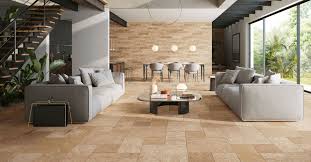
Glass cubicles are not only highly sought after but also a truly modern approach to interior design. They are more than just a style; glass cubicles transform an office style into an appealing, open-concept spatial arrangement. Natural light enters without hindrance and encourages collaboration.
This article goes further to analyze the various pros and cons of using the glass office cubicle across diverse industries.
Industries that Benefit from Glass Cubicles
1. Technology and Creative Industries
· Collaboration Focus:
Design studios and creative agencies flourish in open settings. Glass cubicles maintain sight lines among team members and groups while offering the much-needed privacy that promotes productivity.
· Innovation:
Many tech companies prefer an aligned glass cubicle design. These workplaces not only embrace modern workspaces but also implement cutting-edge changes.
2. Firms that Specialize in Marketing and Advertising
• Aesthetics to the client:
For marketing firms, innovation is the secret to staying ahead. That is why glass cubicles are such a great way to impress those new clients without sacrificing the professional vibe.
• Team Labor:
The other industries mentioned above primarily focus on working together and brainstorming, which the use of glass for their partitions help to make possible.
3. Small and Startup Businesses.
· Flexibility and Dynamism:
Glass units serve the purpose of flexibility and functionality for startups. They can add to the team without building barriers.
· Best Use of Space:
In small offices, glass cubicles increase the usability of office space and create an airy environment while still offering some partitioning to workstations.
Industries That Would Not Benefit from Glass Cubicles
1. Legal And Financial Services
• High Level of Privacy Needed:
Offices that deal with confidential information, like law firms or financial institutions, have a heightened need for privacy. Glass cubicles are not suitable for protecting confidentiality, as clients and sensitive documents can easily be viewed.
· •Focus on Privacy:
These types of industries prefer private enclosed offices or cubicles that are constructed with stronger partitioning to ensure privacy and security.
2. Healthcare
• Confidentiality of the Patient:
Healthcare offices and clinics enforce strict confidentiality regarding patient information. Glass cubicles do not have the necessary protection needed to maintain the confidentiality of sensitive medical records or conversations with patients.
• Noise Control:
Healthcare settings sometimes require quiet spaces for consultations or confidential meetings, which may not be provided by glass partitions.
3. Manufacturing and Industrial Sectors
• Physical and Environmental Conditions:
In manufacturing or industrial settings, glass cubicles may not be durable enough to withstand the physical demands of the environment. The presence of dust, noise, and temperature changes may render glass cubicles impractical.
• Privacy and Safety Concerns:
These types of industry typically have strong needs for high security, restricted access, and specific work environments, which glass partitions may not be able to accommodate.
Conclusion
For some sectors, the benefits of glass cubicles may outweigh the downsides; however, not all industries will be suited to this type of partition. Glass cubicles can be an excellent choice for businesses that value collaboration, innovation, and modern design. That said, in cases where confidentiality, noise control, and privacy are of greater concern, a more solid, enclosed office would be more appropriate.
With glass cubicles, a business needs to make sure that they examines the needs and the culture of the specific industry to ensure that the design satisfies the objectives.









